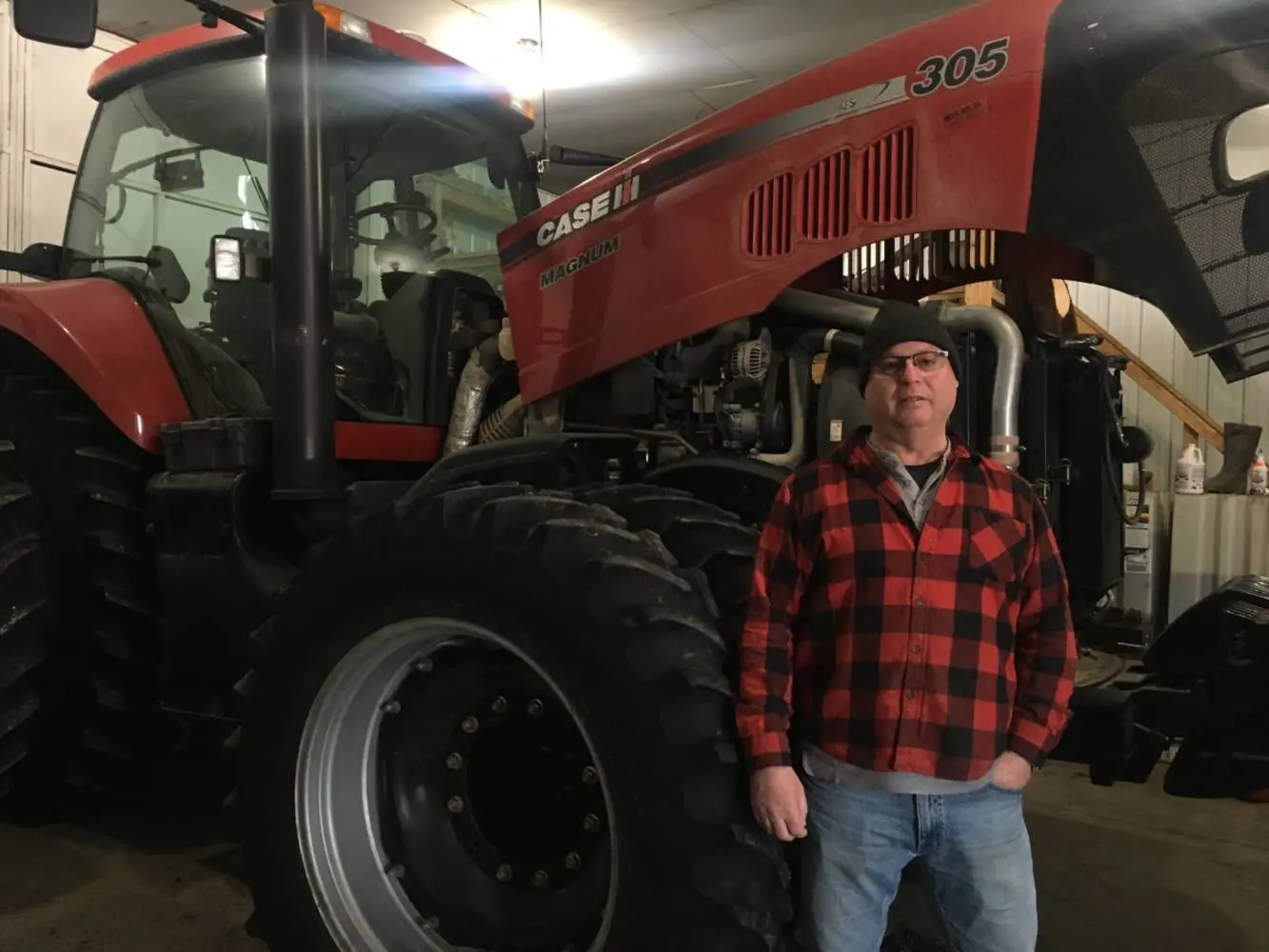TJT Gottman Inc. is setting a strong example for learning about and implementing conservation practices on the farm, with brothers Tim and Trent Gottman committed to leaving the land in the best possible condition for the next generation.
Growing up on the family farm in Monroe City, Tim Gottman found his passion for agriculture at a young age. He said he never loved school because he was always ready to come back home and work on the farm.
Now, Gottman and his brother, Trent, operate their farm, TJT Gottman Inc., in a way that not only supports their families, but also future generations to come.
“I would like to think when we’re done farming, they’ll say, ‘That farm is in better shape than it was when they took it over,’” Gottman said.
The Gottmans prioritize conservation efforts like soil health and water quality testing in order to ensure their farm is sustainable for future generations. This sustainability is furthered by their philosophy of investing money back into the farm.
Cover crops are one of their top conservation priorities, Gottman explained. He has seen better results with cover crops than other practices.
“Through our years of farming, we’ve seen so much erosion. You can terrace and you can try other practices, but the weather always seems like it goes against you once you till the soil up. This cover crop is allowing something to be growing in the soil year-round, so when you have the big rains, your soil stays put.”

Gottman said in addition to the soil staying put, cover crops also save moisture during the dryer times and allow nutrients to remain in the field.
Getting involved with Missouri’s soybean organizations has shown Gottman the importance of playing an active role in the industry. He now serves on the Missouri Soybean Merchandising Council board of directors and has gotten involved in several research projects focused on soil health and conservation.
TJT Gottman, Inc. is one of only six Missouri farms in the prestigious Soil Health Partnership, a national farmer-led soil health initiative that is using science and data to improve the economic and environmental sustainability of farms. He also participates in Missouri’s Edge of Field Water Quality Monitoring Program.
For research purposes, Gottman has a control project and a test plot on his farm. He is monitoring water that comes off of a cover crop through a waterway, in addition to the control that has water running straight off the field. They are testing the water quality of both field plots.
“It’s pretty preliminary, but the data is already starting to show how your practices affect water quality and what the results of that are,” Gottman said.
One of his favorite aspects of the research projects he participates in is the expected precision of the data collected.
“They don’t want bogus numbers,” he said. “They want numbers that are true. No matter what they show, they want them to be true. As soon as I heard that I was in.”
Gottman explained he is interested in that accurate data that will inform the small adjustments and decisions they make on their operation. In the long run, those small adjustments affect the bottom line of farmers across the state.
“Our profitability right now is pretty tight. We can’t, as farmers, sit there and keep spending money that’s running down in the ditches. We have to hold our money in the field. Every dollar you spend, you want to see that coming back to you and your farm.”
Learning about conservation practices through programs like the Soil Health Partnership allows the Gottmans to become more efficient and spend their money more wisely.
Gottman admits in the past, they didn’t always prioritize soil health or conservation efforts. He believes implementing practices like cover crops is an important step toward being proactive against problems like erosion on the farm.
“We got tired of standing here saying, ‘Man, the big rain got us again.’ I want to stand here after a big rain and know we protected ourselves the best we could. But, it’s not easy.”
It has taken a lot of trial and error for the Gottmans to reach the level of sustainability they are at today. Tim shares these experiences with others by hosting farmer tours, as well as on-farm visits for researchers and industry, sharing his experiences with intentional conservation and sustainability efforts.

He also enjoys sharing his knowledge about cover crops with others. The biggest piece of advice he would give to other farmers is to anticipate challenges while beginning to implement some of these practices.

“Don’t expect perfection right out of the gate because there are always going to be challenges, and you’re going to have to figure out what works for you,” he explained. “But, keep trying. Don’t give up on it.”
Gottman believes that progress is the key to providing a solid foundation for future generations.
“We were raised by moldboard plow guys, and this is all new, really. The way we have done it the past 50 years isn’t going to work for another 100. We have to continue making progress to move our farms and the industry forward.”
For more information, visit mosoy.org.
